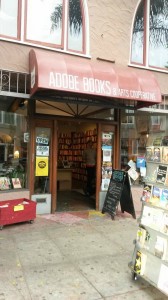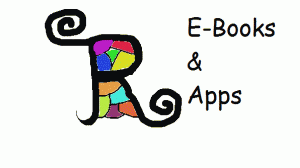November is a fall month for many of us, a time when those in the United States come together to celebrate and show gratitude for the blessings of the past year. This month’s submissions form a Thanksgiving potluck, as they, like the various dishes of the shared meal, each illustrate aspects of unity, how different people or things come together to form a whole.
In Jason Ascerno’s poem “My Skateboard” the narrator looks at his broken skateboard and misses the joy of riding it. He’s developed a relationship with the vehicle where it’s not just a tool, but part of his life and who he is. Neila Mezynksi’s piece “Both” illustrates the beauty of a close bond between two people in her short piece about an intertwined couple.
Christine Murphy’s piece “molten blue and amethyst” is a reflection on loss, and healing as acute grief becomes longing. Like the sea nymphs she speaks of, our pain fades away along the axis of time, and we emerge from our mourning to re-enter normal life.
Loretta Siegel’s poem “This I Believe” affirms the value of life and everyday beauty, of simple pleasures and basic goodness. Things that might seem inconsequential, including each of our lives, have meaning and worth, and by appreciating them we can form a healthier society. In his essay ‘Pride & Joy,’ Tony Longshanks LeTigre relates his experience celebrating pride, community, meaningful activism and family and connection at the San Francisco Pride Parade.
Deborah Guzzi’s gentle, reflective poetry collection references Western and ancient Egyptian spirituality and then moves to vignettes set in modern society, suggesting a broader, more timeless context to our world. In a similar vein, Andrea DeAngelis brings the language of cosmology to the world of human relationships and personal identity. Her speakers feel lost and mediocre as they confront the ‘dark matter’ of their psyches during times of loneliness.
Ryan Hodge illustrates the confusion created by the loss of a cohesive identity in his Play/Write column. Some video games have heightened the narrative tension within their storylines by killing off the supposed protagonist or having players discover near the end that the character with whom they identified was confused about some fundamental aspect of the game’s world. Although interesting during entertainment, this experience would likely represent a terribly alienating experience in real life. So we can work towards becoming the protagonists of our own lives, staying present and making conscious choices as best as we can even while we learn and grow.
Roy Huff talks about personal growth and maturation in his poem “Roots,” and his narrator embraces his destiny and becomes strong enough to provide shelter to others. Elizabeth Hughes’ Book Periscope column presents various novels and a memoir (Derrick Randall’s A Soldier’s Thoughts, Zoe Zorka’s Turn Our Eyes Away, Jordan Acker’s The Shadows, Patty Lesser’s Locker Rooms, Louis Villalobos’ The Stranger’s Enigma, and Andrea Carr’s Family Tree The Novel: Family Tree) that look into how our personal pasts and family heritage can influence who we become. Our lives aren’t isolated incidents. What sort of society we have today, and what our young people experience, strongly affects what sort of world we’ll have in the future. In Huff’s metaphor, the roots we grow today bring about the leaves and fruit of tomorrow.
Joe Klingler’s novel Mash Up, reviewed here by Bruce Roberts, explores the delicate balance between music fans, creators and labels represented by copyright law, as well as the partnership between an older detective and a younger police officer. Roberts, while intrigued by each of the novel’s plot threads and the questions they raise, suggests that the complex story could have been strengthened by tighter connections among the story lines.
Ayokunle Adeleye discusses the need for and possibility of integrating people living with disabilities into normal society within his home country of Nigeria. His next piece criticizes megachurches which have selfish values and don’t build community the way these institutions could.
Christopher Bernard’s piece “The Choice” asks what sorts of tradeoffs are inevitable for different societies. Does modernization and the increased material wealth it brings have to involve greed, materialism and environmental destruction? Does harmony with nature require medieval living conditions? Or is there some sort of balance conscious and thoughtful people can strike, integrating sustainable values as we grow and evaluate our ‘deal with the devil?’
We invite you to consider who you are, what you can bring to the table, as you read through this issue of Synchronized Chaos Magazine. And we wish a very happy Thanksgiving to those who celebrate this month.
***San Francisco Bay Area folks:
Synchronized Chaos Magazine ‘s next event, ‘Orphan Thinksgiving ‘ will be Thursday November 13th at 6 pm at Adobe Books in SF’s Mission District. Casual potluck where you are encouraged to bring something to share, such as food, writing etc. Or just bring yourself, that’s wonderful too! Please feel free to post here if you’d like to bring something, although showing up with food the day of the event is great also.
Event is free, all welcome, please bring family, friends or interested strangers! And right near the 24th st. BART. Facebook invite page here, RSVP encouraged but not required: https://www.facebook.com/events/293367420850340/ ***
Commercial announcement from our magazine’s partner, software developer Rui Carvalho:
*** If you are a writer or a poet and dream to show your work to the world, then we believe we have the best of opportunities to share with you.
For a small donation you can have your book presented as an e-book app for Windows Phone or Kindle.
Details are the following:
Windows Phone or Kindle with up to 40 poems – (donation 40 USD)
Rui M. Publisher ISBN – (donation 10 USD)
Annual maintenance – (donation 10 USD per year)
Revision of the text – (donation 50 USD)
Part of the funds will go to Rui Carvalho and enable him to continue the work he does creating apps for health and environmental nonprofits, and the rest will go to Synchronized Chaos Magazine. ***


